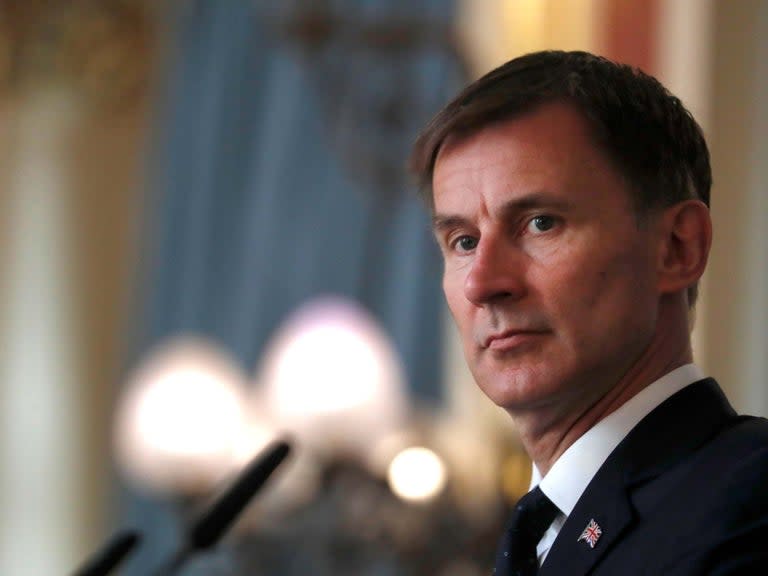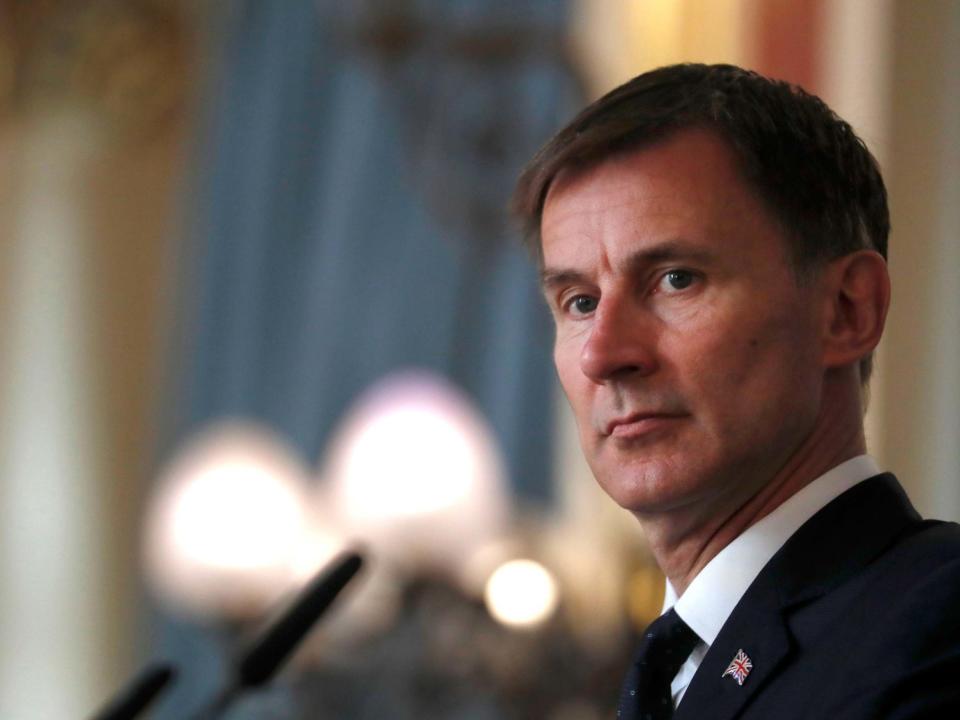EU powers warn Iran it must limit uranium enrichment to keep nuclear deal alive
European powers including the UK have warned that their continued support for the Iran nuclear deal is dependent on Tehran coming back in line with provisions limiting its stockpiles of enriched uranium.
As foreign secretary Jeremy Hunt travelled to Brussels for talks with EU counterparts on Iran scheduled for Monday, the so-called E3 nations – Britain, France and Germany – issued a last-ditch bid to keep the four-year-old deal alive, calling for “signs of goodwill” from the Islamic republic.
Mr Hunt vowed to do everything in his power to stop Iran from obtaining nuclear weapons, which he said would pose “an existential threat to mankind”.
The developments came amid growing tensions in the region, following the seizure of a tanker carrying Iranian oil in Gibraltar and a confrontation between a Royal Navy warship and boats of the Iranian Revolutionary Guard in the Gulf last week.
Meanwhile, Tehran has confirmed it has breached limits on uranium stockpiles, in a move designed to put pressure on Europe to take action to offset the impact of sanctions reintroduced last year by US president Donald Trump.
In a statement issued on the fourth anniversary of the 2015 Joint Comprehensive Plan of Action (JCPOA) which offered Iran relief from sanctions in return for curtailing its nuclear programmes, the E3 confirmed their commitment to the deal despite Mr Trump’s decision to pull the US out.
But they added: “Today, we are concerned by the risk that the JCPOA further unravels under the strain of sanctions imposed by the United States and following Iran’s decision to no longer implement several of the central provisions of the agreement.
“We are extremely concerned by Iran’s decision to stockpile and enrich uranium in excess of authorised limits. Moreover, our three countries are deeply troubled by the attacks we have witnessed in the Persian Gulf and beyond, and by the deterioration of the security in the region.
“We believe the time has come to act responsibly and seek a path to stop the escalation of tensions and resume dialogue. The risks are such that it is necessary for all stakeholders to pause and consider the possible consequences of their actions.”
In a clear warning of the consequences if Tehran continues to flout the terms of the deal, the E3 said: “While we continue to support the JCPOA, its continuation is contingent on Iran’s full compliance, and we strongly urge Iran to reverse its recent decisions in this regard.”
They added: “Our countries have recently taken several diplomatic initiatives to contribute to de-escalation and dialogue, for which signs of goodwill are urgently needed from all sides … In search of a resolution we will continue our active engagement with all interested parties, in the interest of the preservation of international peace and security.”
Speaking ahead of the Foreign Affairs Council meeting in Brussels, Mr Hunt said: “The Middle East is already one of the most unstable regions in the world, but if the different parties were armed with nuclear weapons it would represent an existential threat to mankind. I will do everything in my power to prevent that from happening.
“Today I’ll be building on the leadership shown by the UK, alongside France and Germany, as we do what it takes to maintain the nuclear deal, and to work to encourage Iran back into compliance.”
Mr Hunt spoke at the weekend with Iranian foreign minister Javad Zarif, who demanded the release of the oil tanker Grace 1, currently being detained in Gibraltar on suspicion of busting UN sanctions on Syria.
“As I said to the Iranians this weekend, the detention of the Grace 1 was a Gibraltar-led enforcement of EU Syria sanctions,” said Mr Hunt. “Action had to be taken, and this was nothing to do with the oil being Iranian.”



